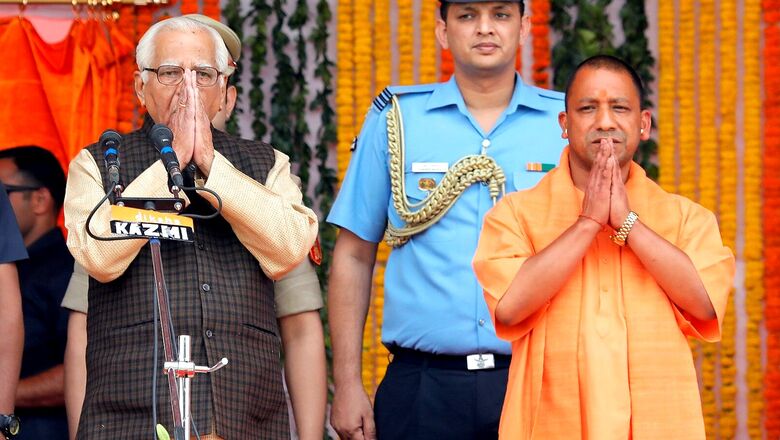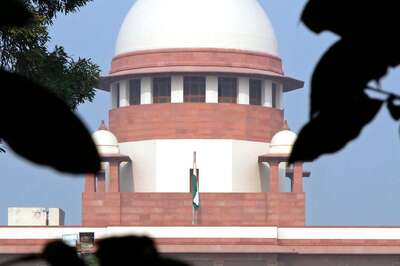
views
But this was not the first time the backward communities or OBCs were asserting themselves politically. Among the first-generation political representatives during colonial India, there were a few OBC and even Dalit leaders. Some castes under OBCs (Other Backward Classes) had slowly acquired economic mobility and even became a part of the landed gentry. Due to various changes in land policies during the last phase of the colonial governance, many OBC communities, who were either raiyyats (peasant cultivators) or jotedars, became owners of the land. (Srikant Joshi, Bihar Main Chunav: Jati, Hinsa aur Booth Loot, Bani Prakashan, 2005).
During the election to the Legislative Council in 1937, several OBC leaders were visible; the Triveni Sangh (an organization of backward communities) had already started asserting itself politically in some parts of the country, especially Bihar. Ganapati Mandal, Dasu Singh, Tapasi Ram Mahato, Nand Kishor Singh, Yadunandan Mahato had contested the 1937 Legislative Council election under the banner of the Triveni Sangh.
In Independent India, abolition of the zamindari system and state-supported distribution of land further paved the way for economic mobility among some sections of the OBCs. With economic mobility came political aspirations, and these were articulated through the socialist politics in northern India.
ALSO READ | UP Next: In BSP, Jatavs Saw an Opportunity to Acquire Power. Mayawati Knows She Has to Deliver in 2022
The OBC communities gave India many eminent socialist leaders in the 1960s, like Ramswaroop Verma, a Kurmi, who was briefly the finance minister in the Charan Singh-led government in Uttar Pradesh. This period also coincided with the launch of Green Revolution, which provided yet another avenue to few OBC castes engaged in agriculture to achieve economic mobility in north India. Some entrepreneurial OBC communities used the money made through agriculture to buy more land and diversified into other economic activities. This section was also aware of government support and sought bank loans to further their business.
Slowly, a political class of OBCs emerged in states like Uttar Pradesh and Bihar, with people from these communities getting elected as MLAs, MPs and ministers.
The Jayaprakash Narayan-led anti-Emergency movement in 1975 provided space to various OBCs leaders such as Lalu Yadav, Nitish Kumar and Mulayam Singh Yadav. In 1990s, the implementation of the Mandal Commission report gave another impetus to the OBCs. Around the same time, the local self governance system widened the scope for political participation for OBCs and other communities.
On the road to political empowerment, few OBC castes became influential in states like UP and Bihar. These castes are mainly Yadavs, Kurmis, Mauryas, Lodhis and Jats. OBC castes like Nishads, Mallahs and Rajbhars among others are still waiting to get their share in democratic politics—although they have taken the first steps towards achieving their aspirations by forming political parties.
ALSO READ | UP Next: Some Invisible Scheduled Castes are Finally Getting Visibility, Through BJP Govt Policies
Always associated with socialist politics, OBCs have veered towards Hindutva in the last few years. After 2014, one can clearly see how the Bharatiya Janata Party (BJP) has given a wider space to the OBC communities in its politics and power-sharing. The BJP has identified and groomed leaders from various OBC communities. To build on its OBC base, it has given political space to various politically non-dominant but numerically strong OBC communities such as Kurmi, Maurya, Lodh, Kushwaha, Chaurasia. The BJP is slowly expanding its base among the most backward castes or MBCs and these communities may get political representation in the future.
Representation and mobilization go hand in hand in democratic politics. The recent reshuffle of the Narendra Modi Cabinet clearly tells us that in the 2022 Uttar Pradesh election, the BJP aims to bring several OBC castes within its electoral fold.
Badri Narayan is professor and director of GB Pant Social Science Institute, Prayagraj, and the author of ‘Republic of Hindutva’. The views expressed in this article are those of the author and do not represent the stand of this publication.
Read all the Latest News, Breaking News and Coronavirus News here.




















Comments
0 comment